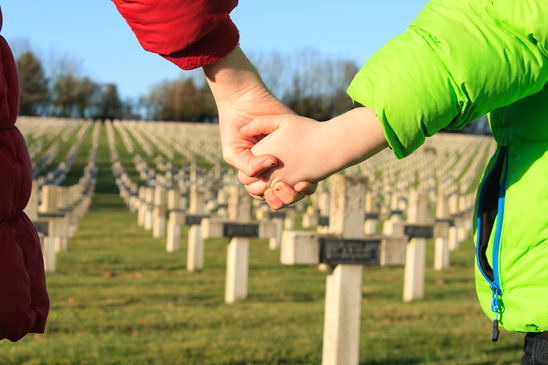
A child’s pet is often her first and dearest friend. After years of running in the backyard with a puppy, sleeping with a cat at the end of the bed, or feeding a treasured goldfish, a preschooler will likely be flummoxed and overwhelmed by the loss of her companion. Where did Rover go? When is he coming back? Will I disappear someday after you send me to the doctor, too?
How do you explain the concept of death to a child who has only begun to live?
Don’t Dodge Or Deny
Your parental instinct may be to avoid talking about death in the hope of protecting a child from the emotional consequences. But silence expresses a message in itself: It’s a barrier to communication that makes the child assume that the subject is verboten, and his feelings as well. He may become so unwilling to broach the subject that his worries and fears will run wild and express themselves as clinginess, bed-wetting, or other regressive behaviors.
Honesty In Small Doses
Be open to your child’s questions, but speak just enough truth in terms that your preschooler can understand. Rather than launch into a discussion of how Fluffy’s growing tumor killed him, simply say that your pet died because his body didn’t work anymore. Acknowledge your emotions as well as your child’s. “Fluffy will not come back. That makes me sad because I will miss him.”
Ritual And Routine
Wakes, funerals, and memorial services are ways that adults acknowledge the passing of a loved one, grieve for the loss, and then continue on in life. You may not want to have your preschooler shovel dirt graveside, but there are other ways to memorialize a loss. Encourage your child to draw a picture of her pet or keep one of his collars or toys in a special place as a way of honoring the memory.
Returning to the family routine in as gentle a way as possible will also help provide the comfort of structure to a child whose world has been dearly shaken.
Process And Progress
Death is the big question, so it is no surprise that a preschooler may continue to ask questions long after the event. When considering how to address your child’s curiosity, take into account their age and emotional maturity.
Above all, don’t be afraid to confess that you don’t have all the answers. Part of growing up is accepting that parents aren’t all-knowing. For many children, it’s a comfort to realize that their parents are imperfect, just like them.





















